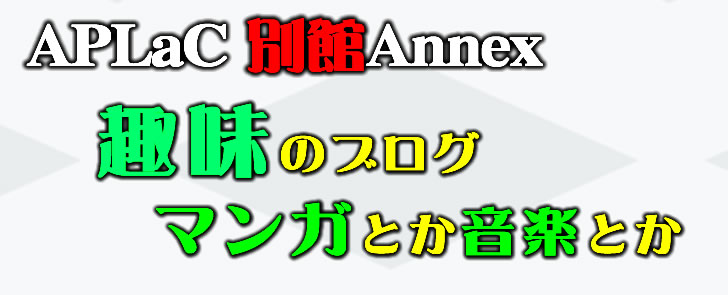移民局の広報(メディアリリース)で、以下のような注意報が出ていました。
気をつけるべきことだと思ったので、ここに転載しておきますね。
★→ワーホリの部屋に行く
★→語学学校研究へ行く
★→一括パック現地サポートを見てみる
★→APLaCのトップに戻る
気をつけるべきことだと思ったので、ここに転載しておきますね。
SMS scam warning for visa holders
14-06-2013 -
The Department of Immigration and Citizenship (DIAC) today warned temporary working holiday visa holders to be aware of scam text messages which appear to be from the department, seeking final payments for their visa application.
The text messages are targeting international communities in Australia holding temporary working holiday visas.
A departmental spokesman said it was a well-organised ruse to con visa holders into transferring a purported “unpaid Government fee”, when none is needed.
“The department has received information from a number of clients who have been sent these text messages, which directs them to a bogus web page that appears to be from DIAC,” the spokesman said.
“Anyone who receives this type of text message seeking payment should ignore the message.”
The webpage may appear authentic as it contains the department’s logo and ABN but can be identified the words “nettransfer.info” in the web address. It is from this bogus webpage that a payment can be made using a credit card.
It is important to report such incidents to the relevant state or territory police and to the Immigration Dob-In Line on 1800 009 623.
Media Enquiries: National Communications 02 6264 2244
14-06-2013 -
The Department of Immigration and Citizenship (DIAC) today warned temporary working holiday visa holders to be aware of scam text messages which appear to be from the department, seeking final payments for their visa application.
「移民局は、本日、ワーホリビザ保持者に対し、詐欺SMSに注意するように呼びかけました。このSMSは、移民局から発信されているように見せかけ、ワーホリビザの申請料金を払うように督促する内容になっています」
The text messages are targeting international communities in Australia holding temporary working holiday visas.
このテキストメッセージ(SMS)は、オーストラリアに滞在するワーホリビザ保持者に向けて発信されているものです。
A departmental spokesman said it was a well-organised ruse to con visa holders into transferring a purported “unpaid Government fee”, when none is needed.
移民局のスポークスマンは、これはワーホリビザ保持者から、存在しない「政府への未払い料金」を偽ってお金を送金させようとする、非常に良く練られた詐欺行為であると述べた。
“The department has received information from a number of clients who have been sent these text messages, which directs them to a bogus web page that appears to be from DIAC,” the spokesman said.
「当局は、これらのSMSを受信した人々から数多くの情報を受けています。SMSに示されているサイトは、あたかも移民局のサイトであるように装われています」
“Anyone who receives this type of text message seeking payment should ignore the message.”
「こういったお金を払うように促すメッセージを受信した人は、どうか無視してください」
The webpage may appear authentic as it contains the department’s logo and ABN but can be identified the words “nettransfer.info” in the web address. It is from this bogus webpage that a payment can be made using a credit card.
このWebページは、移民局のロゴもABN(オーストラリアビジネス登録番号)も明記されており、一見すると真正のもののようですが、しかし、URLに“nettransfer.info”と書かれていることで、その虚偽が判別できます。このニセページでは、クレジットカードで料金を払うようになっています」
It is important to report such incidents to the relevant state or territory police and to the Immigration Dob-In Line on 1800 009 623.
このような不審な行為を見た方は、関連する州警察に通報、ないし移民局のホットライン1800 009 623にご一報ください。
Media Enquiries: National Communications 02 6264 2244
メディアからの問い合わせ先
一口英語レッスン:詐欺系の英語
"scam"というのは「詐欺」「騙しの手口」の意味でよく使います。
"con"というのは、「騙す」こと。"con-man"は「詐欺師」「口の巧い奴」。"pros and cons(賛否両論)"の"con"とはスペルも発音も同じだけど、違う単語なので注意。
"bogus"は「ニセの」の意味。
"ruse"は「策略」という意味。
ここには出てこないけど"fake"(フェイク)もニセという意味、"fraud"も詐欺(犯罪として)、"swindle"は騙し取ること、"deceive"は「騙す」のもっとも一般的な言葉(犯罪でない場合もひろく含む)。
"scam"というのは「詐欺」「騙しの手口」の意味でよく使います。
"con"というのは、「騙す」こと。"con-man"は「詐欺師」「口の巧い奴」。"pros and cons(賛否両論)"の"con"とはスペルも発音も同じだけど、違う単語なので注意。
"bogus"は「ニセの」の意味。
"ruse"は「策略」という意味。
ここには出てこないけど"fake"(フェイク)もニセという意味、"fraud"も詐欺(犯罪として)、"swindle"は騙し取ること、"deceive"は「騙す」のもっとも一般的な言葉(犯罪でない場合もひろく含む)。
★→ワーホリの部屋に行く
★→語学学校研究へ行く
★→一括パック現地サポートを見てみる
★→APLaCのトップに戻る
APLaC/Sydney(シドニー多元生活文化研究会)
4/180 Bridge Rd, Glebe, NSW 2037 Australia
TEL : +61-466-980-743





禁無断転載/(但しリンクはフリーにどうぞ!)
Copyright 1996- APLAC.
4/180 Bridge Rd, Glebe, NSW 2037 Australia
TEL : +61-466-980-743
APLaC(アプラック)は、オーストラリア現地(シドニー)に拠点を構えて、移住・留学・ワーキングホリデー等についての現地情報・無料相談・学校紹介を行っているエージェントです。
tamura@aplac.net




禁無断転載/(但しリンクはフリーにどうぞ!)
Copyright 1996- APLAC.
No reproduction or republication unless Copyright law allows.

